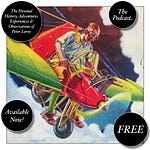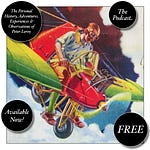IN THE HALL, I threw myself into the usual chaos of kids hurrying for their lockers before catching their buses for home, bumping against one another, rebounding, bumping into someone else, bouncing with a Brownian shuffle. Every time I found myself in this mad shuffle, the experience made me want to change the combinations on the locks—and that made me giggle, with the result that every time I changed classes I giggled like a zany. Someone grabbed my sleeve. It was Matthew.
“What’s so funny?” he asked.
“Oh, nothing,” I said. “Nothing.”
“Peter,” he said, “you’re becoming very strange. Look, I think we have to have a talk.”
“Okay,” I said.
“Before this gets out of hand.”
“Yeah?”
“I know you mean well, but I have to tell you something.”
“What?”
“The group is on the wrong track.”
“What do you mean?” This came from behind us. We turned to find Marvin there.
“We’re barking up the wrong tree,” said Matthew.
“Huh?” said Marvin.
“We’re way out in left field,” said Matthew.
“I understand what you’re saying,” said Marvin. “But I don’t understand why you think we’re on the wrong track barking up the wrong tree way out in left field.”
“Oh,” said Matthew. “Well, I think you’ve fundamentally misinterpreted the question.”
“Thanks,” said Marvin.
“You’re welcome,” said Matthew. “The problem is that you’re interpreting it too narrowly.”
“Really?” I said.
“Really,” said Matthew.
“Is that so?” I said.
Matthew frowned. “You don’t have to keep making those little responses to what I say, Peter,” he said.
“No?” I said.
“No,” he said. “Just be quiet and let me talk.”
“Right,” I said.
“I’ve been doing a lot of thinking about this question,” he said.
“Well, I’ve been doing a lot of thinking about it, too,” I said.
I had been doing a lot of thinking about the question, and I had some good ideas about it. At least they seemed good to me. I liked them. I was very fond of them, in fact. Our affection for our ideas can be as strong as our feelings for people, and it’s surprising how quickly our attachment grows. I already felt something like the protective love of a parent for my interpretation of Miss Rheingold’s question. Perhaps it was a paltry thing, but it was mine, and hearing it attacked, dismissed, I felt the same kind of sting I would have felt if Matthew had been attacking me, my worth, my existence, my merit. This response may have been irrational, but we are rational beings who often behave in irrational ways. Criticisms of our ideas, our words, our work feel like criticisms of our selves, in toto, not just that part of us that is under attack. Where, after all, do we draw the line between our ideas and our selves?
“I’m sure you have,” said Matthew. Our eyes locked for a moment. “However—” He let that hang in the air until I responded.
“Yeah?” I said.
“As I see it, Miss Rheingold asked these questions because she wants us to achieve a synthesis of all the branches of science. You’re only thinking about one area of inquiry—physics—but what we’re supposed to be learning is called general science, remember?”
I was going to say something, but as soon as I opened my mouth, Matthew pointed a silencing finger at me and continued: “So she wants us to answer questions that make us think about all the branches of science in a unified way. There are lots of ways to think about the question, but only one of them ties all the kinds of science together, and I’ve figured out what it is. You see, the question is really a question about thinking. It’s a question about questions. The real point of the question is this: At what point do you stop thinking about the question? If you think about it, you’ll realize I’m right. Haven’t you found that you can’t stop thinking about the question? You go home after school and you need a break, but you can’t stop thinking about it.”
“True,” said Marvin.
[to be continued]
Have you missed an episode or two or several?
You can begin reading at the beginning or you can catch up by visiting the archive or consulting the index to the Topical Guide. The Substack serialization of Little Follies begins here; Herb ’n’ Lorna begins here; Reservations Recommended begins here; Where Do You Stop? begins here.
You can listen to the episodes on the Personal History podcast. Begin at the beginning or scroll through the episodes to find what you’ve missed. The Substack podcast reading of Little Follies begins here; Herb ’n’ Lorna begins here; Reservations Recommended begins here; Where Do You Stop? begins here.
You can listen to “My Mother Takes a Tumble” and “Do Clams Bite?” complete and uninterrupted as audiobooks through YouTube.
You can ensure that you never miss a future issue by getting a free subscription. (You can help support the work by choosing a paid subscription instead.)
At Apple Books you can download free eBooks of Little Follies, Herb ’n’ Lorna, and Reservations Recommended.
You’ll find overviews of the entire work in An Introduction to The Personal History, Adventures, Experiences & Observations of Peter Leroy (a pdf document) and at Encyclopedia.com.














Share this post